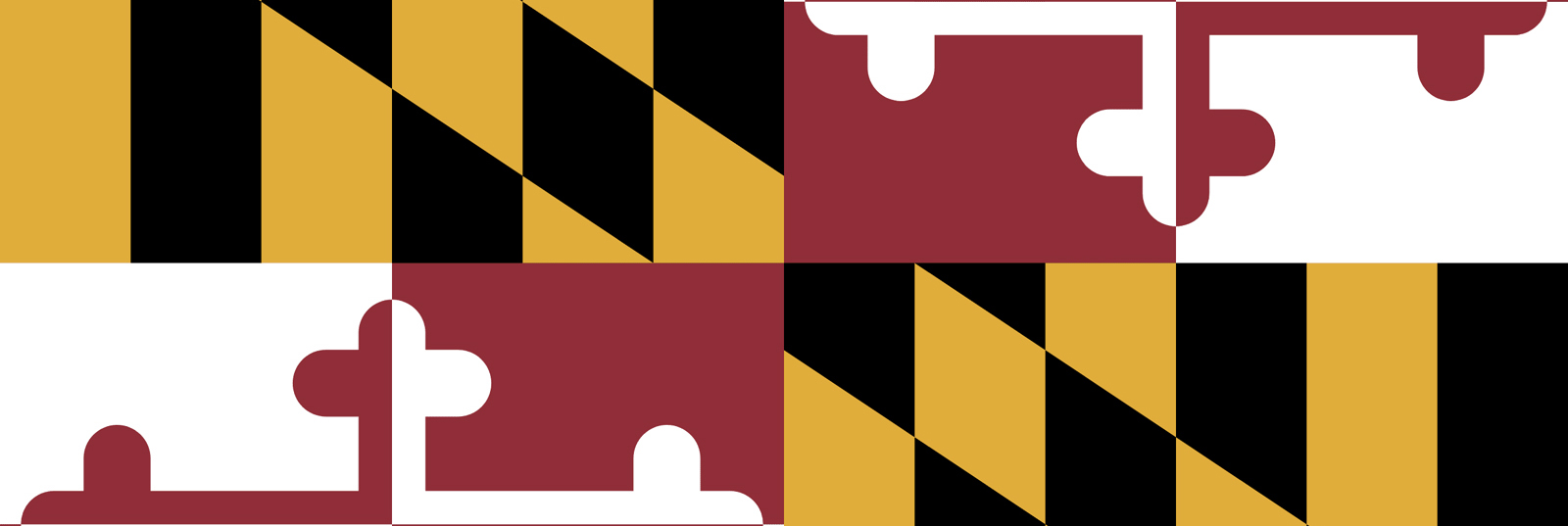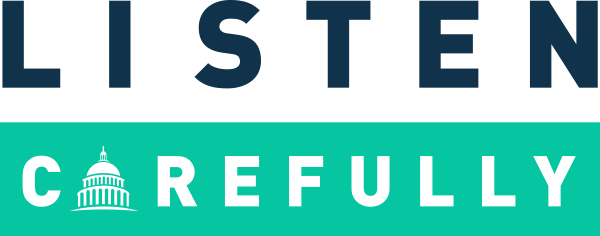
Maryland
Conversations are happening across the country to ensure safe, quality hearing assistance is available to those who need it. Check below to see what’s happening in Maryland.
Did you know?
11% of Maryland's population has some form of hearing loss.
Current consumer protection action
Maryland HB 149: The measure modifies provisions relating to health medical records
Summary: The measure modifies provisions relating to health medical records.
The measure extends the time period during which a health care provider is prohibited from destroying medical records and laboratory and X–ray report. Requires that the notice required to be provided regarding the destruction of medical records be made by e–mail.
The measure extends the period to seven years.
The measure takes effect October 1, 2024.
Status: Pending Executive Approval
Maryland HB 1339: This measure applies to health insurance coverage for hearing aids for adults
Summary: This measure applies to health insurance coverage for hearing aids for adults. Impacted entities included insurers, nonprofit health service plans, and health maintenance organizations.
This measure defines hearing aids as nondisposable devices designed to optimize audibility and listening skills for adults.
Under this measure, impacted entities would be required to provide coverage for all medically appropriate and necessary hearing aids if the hearing aids are prescribed, fitted, and dispensed by a licensed audiologist. Entities can limit this benefit to $1,400 per hearing aid for each hearing-impaired ear every 36 months, but insured or enrolled patients can choose higher-priced devices and pay the difference out of pocket.
This measure takes effect January 1, 2025.
Status: Pending Executive Approval
Outlook: This measure passed the Senate on April 3 with a 47-0 vote.
This measure is eligible to be sent to Governor Wes Moore (D). Upon receiving the measure, the Governor has 30 days to sign or veto the measure. If the Governor takes no action on the measure, it will become law without a signature. If the Governor vetoes the measure, The legislature can override the veto with a 3/5 majority vote in both chambers. A vote cannot take place unless a special session is convened.
The March 12 amendment adds that coverage needs to be provided if the hearing aids are prescribed, fitted, and dispensed by a licensed audiologist.
This measure is the companion to SB 778.
Maryland SB 778: This measure applies to health insurance coverage for hearing aids for adults
Summary: This measure applies to health insurance coverage for hearing aids for adults. Impacted entities included insurers, nonprofit health service plans and HMOs.
This measure defines hearing aids as non disposable devices designed to optimize audibility and listening skills for adults.
Under this measure, impacted entities would be required to provide coverage for all medically appropriate and necessary hearing aids prescribed, fitted, and dispensed by a licensed audiologist. Entities can limit this benefit to $1,400 per hearing aid for each hearing-impaired ear every 36 months, but insured or enrolled patients can choose higher-priced devices and pay the difference out of pocket.
This measure takes effect January 1, 2025.
Status: Pending Executive Approval
Outlook: This measure passed the House on March 27 with a 138-1 vote.
This measure is eligible to be sent to Governor Wes Moore (D). Upon receiving the measure, the Governor has 6 days (excluding Sundays) to sign or veto the measure. If the Governor takes no action on the measure, it will become law without a signature. If the Governor vetoes the measure, The legislature can override the veto with a 3/5 majority vote in both chambers. A vote cannot take place unless a special session is convened.
This measure is the companion to HB 1339. The February 28 amendment requires hearing aids to be prescribed, fitted, and dispensed by …
Maryland SB 795: The measure provides the scope of audiology practice
Summary: The measure provides the scope of audiology practice.
“Practice audiology” involves the comprehensive evaluation, diagnosis, management, and treatment of auditory and vestibular conditions in the human ear. This includes the prescription, ordering, sale, dispensing, and fitting of hearing aids for individuals requiring correction or relief from related conditions.
The measure extends the practice of audiology to encompass the prescription, ordering, sale, dispensing, or external fitting of sound processors to osseo-integrated devices and cochlear implants for the correction or relief of conditions specific to these devices.
Additionally, the practice of audiology includes various non-surgical procedures such as health screenings, removal of foreign bodies and cerumen from the external auditory canal that is not impacted to the point it requires anesthesia, ordering cultures and bloodwork testing as it relates to the auditory or vestibular conditions in the human ear, in-office nonradiographic scanning or imaging of the external auditory canal, and ordering radiographic imaging.
The measure provides exclusions for certain procedures from the scope of audiology practice. These exclusions involve surgical interventions using instruments such as lasers, scalpels, needles, cautery, cryoprobes, or sutures that cut, burn, vaporize, remove, or permanently alter human tissue. Also excluded are surgeries related to osseo-integrated devices and cochlear implants, as well as the preparation, operation, or performance of radiographic imaging.
The term “sound processor” is defined in the bill as a non-surgical, external unit that attaches to an internal osseo-integrated device or cochlear implant.
The measure takes effect October 1, 2024.
Status: Pending Executive Approval
Outlook: On April 2, this measure passed the House by a vote of 121-13.
This measure is eligible to be sent to Governor Wes Moore (D). Upon receiving the measure, the Governor has 6 days (excluding Sundays) to sign or veto the measure. If the Governor takes no action on the measure, it will become law without a signature. If the Governor vetoes the measure, The legislature can override the veto with a 3/5 majority vote in both chambers. A vote cannot take place unless a special session is convened.
The March 15 amendment clarifies that the term practice audiology only includes the removal of a foreign body or cerumen from the external auditory canal, that is not impacted to the point that requires anesthesia and that ordering bloodwork must be related to …
Maryland HB 464: The measure adds to the practice of audiology
Summary:
The measure adds to the practice of audiology.
Audiologists can:
- Evaluate, diagnose, manage, and treat auditory or vestibular conditions in the human ear:
- Prescribe, order, sell, dispense, or externally fit a sound processor to an osseo–integrated device for the correction or relief of a condition for which osseo–integrated devices are worn; and
- Prescribe, order, sell, dispense, or externally fit a sound processor to a cochlear implant for the correction or relief of a condition for which cochlear implants are worn.
“Practice audiology” includes:
- I) The conducting of health screenings;
- II) The removal of a foreign body or cerumen from the external auditory canal, that is not impacted to the point that requires anesthesia;
- IV) The ordering of cultures and bloodwork testing that is related to the auditory or vestibular conditions in the ear;
- V) The ordering and performing of in–office, non-radiographic scanning or imaging of the external auditory canal;
- VI) The ordering of radiographic imaging, that relates to the auditory or vestibular conditions in the ear.
“Practice audiology” does not include:
- I) Surgery using an instrument, including a laser, a scalpel, a needle, cautery, a cryoprobe, or a suture, in which human tissue is cut, burned, vaporized, removed, or otherwise permanently altered by mechanical means, laser, ionizing radiation, ultrasound, or other means;
- II) Osseointegrated device surgery;
- III) Cochlear implant surgery; or
- IV) The preparation, operation, or performance of radiographic imaging.
“Sound processor” means a nonsurgical, external unit that attaches to an internal osseointegrated device or cochlear implant.
The measure takes effect October 1, 2024.
Status: Pending Executive Approval
Outlook: This measure passed the Senate with a vote of 44 to 1.
This measure is eligible to be sent to Governor Wes Moore (D).
The March 15 amendment clarifies that the term practice audiology only includes the removal of a foreign body or cerumen from the external auditory canal, that is not impacted to the point that requires anesthesia and that ordering bloodwork must be related to auditory or vestibular conditions in the human ear.
Past consumer protection action
January 14, 2022. NAAG Responds to FDA’s Comment Request on New Over-The-Counter Hearing Aid Rules.
“In response to a request for comments from the Food and Drug Administration (FDA) regarding new rules regulating over-the-counter hearing aids, NAAG submitted comments encouraging the FDA to take the below steps to ensure that states maintain a role as regulators in this emerging market.”
Latest 2023 legislative news
SB 103. Sponsor: Senator Malcolm Augustine (D)
This measure applies to licensed audiologists and music therapists.
This measure requires the State Board of Examiners for Audiologists to create an audiologist assistant's license and establish qualifications and scope of practice regulations. This measure allows licensed audiologists to delegate tasks to an assistant within the established scope of practice and supervision requirements.
This measure also expands the definition of unprofessional conduct for music to include falsely representing the use or availability of service or advice of a physician, inaccurately using the term "doctor" on any license or certification, and practicing music therapy with an unauthorized person or supervising or aiding an unauthorized person in practicing music therapy.
This measure goes into effect on July 1, 2022.
HB 155. Sponsor: Delegate Sheree Sample Hughes (D)
This measure alters certain requirements for the licensing and regulation of audiologists, hearing aid dispensers, speech-language pathologists, and music therapists, including clarifying quorum requirements for the State Board of Examiners for Audiologists, Hearing Aid Dispensers, Speech-Language Pathologists, and Music Therapists, license reciprocity, professional disciplinary grounds, and delegation authority for audiologists.
If enacted, this measure will take effect July 1, 2022.
